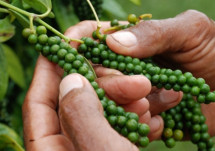USAID's Alternative Development policy in Colombia A critical analysis
Alternative Development as practised by USAID and the Colombia government was always guided more by security rather than development considerations. This report examines the key aspects of USAID's alternative development policy and its implementation in Colombia during the last decade. A critical analysis by Ricardo Vargas.

Authors
The Alternative Development (AD) policy of the United States Agency for International Development (USAID) in Colombia was developed in 2000 within the context of Plan Colombia. Of the US$869 million originally allocated for the counternarcotics program, US$123.5 million went to USAID in Colombia, and US$42.5 million of the USAID funds were earmarked for alterna- tive development programs in the country. The purpose was to create legal income and employment opportunities for small farmers through small projects. The funding was conditioned on the eradication of farmers' illicit crops and their commitment not to plant such crops again in the future.
Key Points
• Alternative development must not be part of a militarised security strategy, which is the predominant approach in Colombia. Instead of simply attempting to reduce the area planted with illicit crops, Alternative Development programmes should operate within the framework of a rural and regional development plan.
• Alternative Development programmes must foster social processes in which the community participates and is empowered throughout the entire project cycle, from formulation to evaluation.
• Before intervening in conflict zones, such as drug crop-growing areas or transit corridors, international cooperation agencies should carry out detailed assessments of factors such as: changes in land tenure structures as a result of the armed conflict; existence of emerging powers related to drug trafficking, paramilitaries or other armed actors; situation of legitimate community organisations (Afro-Colombian and indigenous communities), among others.
• International cooperation agencies should analyse in depth the role of Alternative Development, examining the process of territorial control by organised criminal groups.
Pages: 12
